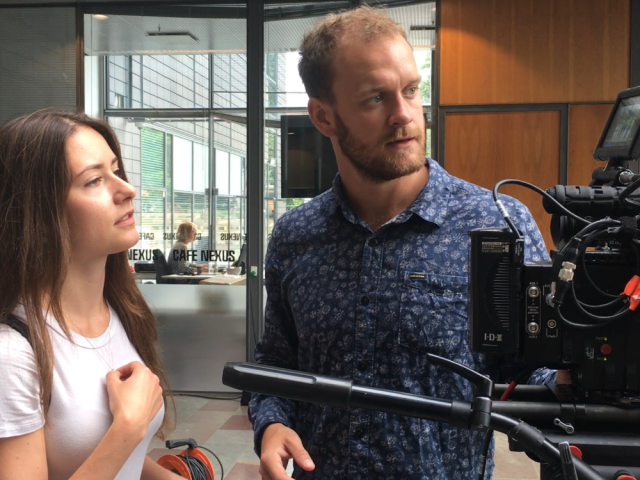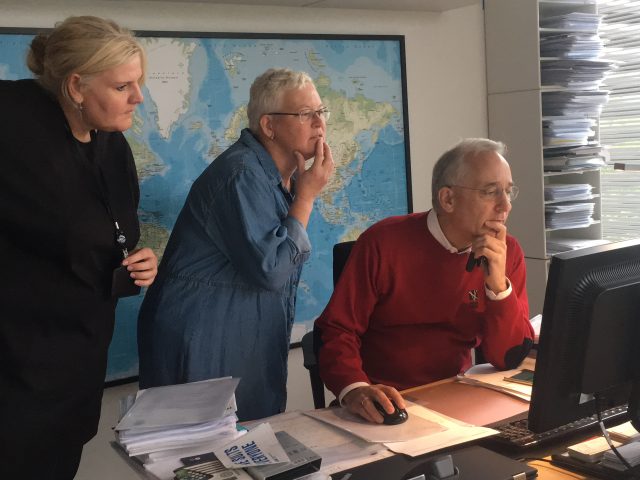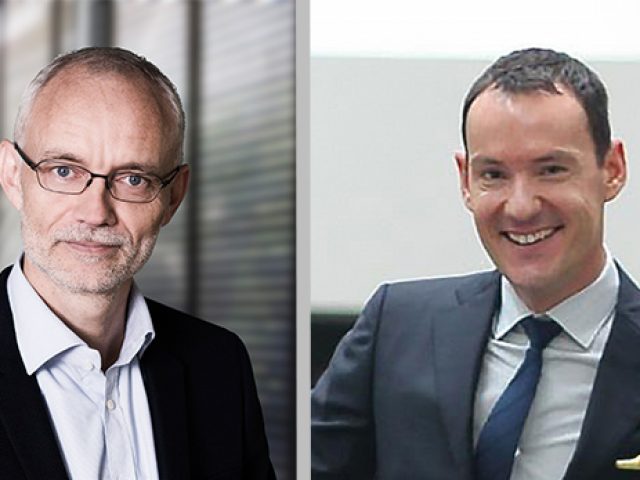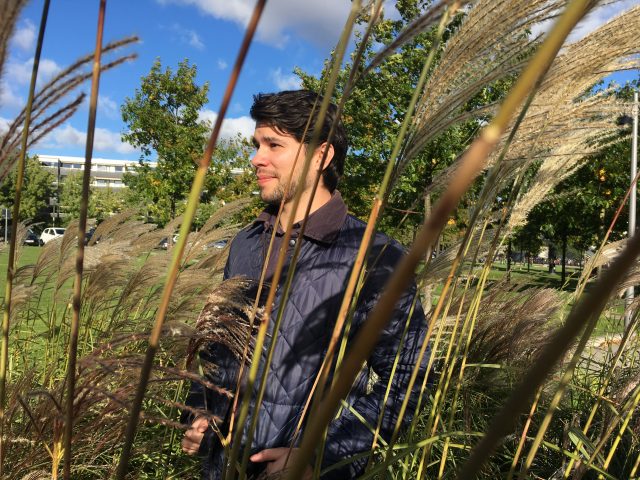CEO and founder: “It was a total relief to leave my job”

Photo: Felix Kunze
Henrik Zillmer, CBS alum and founder of AirHelp, didn’t think he had the confidence to start up a company. However, he ended up quitting his job and going for it. Now, AirHelp is spanning over 30 countries. The CBS alum shares his thoughts on tapping into your ambitions and using them as a driving force.
Despite venturing on the road most often taken by career-driven students, Henrik Zillmer decided to take the plunge and pursue his own dreams of starting his own company.
Henrik Zillmer first enrolled in the BSc International Business program and finished his MSc in E-Business in 2009. After finishing his education at CBS, he began working at the Innovation Center Denmark and finished off with Rocket Internet – an internet startup incubator – in 2012.
It took him nine years to gather up enough courage, but in the end, the successful founder’s pursuit of his dreams paid off. In 2013, he founded AirHelp, a legal app for airplane passengers who want compensation when airlines make a mess of your travel plans.
Since then, the startup has grown into an international enterprise existing in over 30 countries and being backed by several big investors and investment companies. Among them, Y Combinator, one of America’s largest startup incubators.
So, what were some of the driving forces behind his success and how can one leverage their ambition and use it to fuel their everyday work? Read on to find out.

The origin
DF: Before getting into the nitty-gritty of tapping into ambition, it would be nice to know how and where the idea for AirHelp arose?
HZ: What triggered this was that I had a delayed flight coming in from Asia. It was delayed six hours and after looking into my options, I discovered that I had rights. And according to those rights, a claim. But then I had a horrible experience where it took me six months to get the money.
This lead to me thinking that there must be more people with a similar experience and that this could become a business.
Following the dream
DF: Did you already know at CBS that you were going to be an entrepreneur?
HF: All the time I was a little against taking an education. Because I don’t think entrepreneurship can be taught at school. What I did was enroll in an international business degree and then went on an exchange for a semester in Hong Kong and then one in New York. That was just to get as much international experience as possible.
Throughout my master, I did a combination of different classes, some at the IT university because that gave me a little bit of information about the online business world. Basically, looking back on those past five years I was trying to grasp and understand components of the online, or the entrepreneurial world that would help me build my companies afterward.
Knowing now what I know, I could also see that maybe had I started five years ago, I would have learned the same, if not more by just doing it myself.
Being born global is very important.
Henrik Zillmer, CEO and Founder of AirHelp
DF: Did you have to drop your career for this?
HF: It took me 30 years to realize I wanted to be an entrepreneur. Although, I already knew I was going to do it in my 20s or in my 30s, I never had the balls to do it.
I took five years of education and then I worked four years in a corporate environment in Denmark. Working on projects internationally too. Because I thought a lot of the stuff I would learn there would help me with my entrepreneurial journey.
It was a total relief to leave the job. I was just thinking, “ah thank god I finally found out what I want to do.”
But that didn’t mean we didn’t have fun, we had a lot of fun, learnt a lot, and I also used that.
I actually think I used more from what I learnt from work more in my startups than what I learn at school.
I definitely gained experiences, I just wasn’t patient enough.
The bright side of ambition
DF: What does ambition look like?
HF: It’s different from person to person. It’s a little bit about who you are. Maybe you’re a little bit of a big thinker, or you’re larger than life, you have a lot of ambition, or you just have a lot of confidence. It’s a mindset.
Sometimes it can clash with the Danish mindset a little bit. Because in Denmark, we tend to be more modest and not go out of our way to be different, better, or bigger.
You could say it goes against our DNA, but I would still say that if you really break down those barriers and what other people think, there really is no limit to the potential of what your company can become.
No one is setting any rules that inhibit you from creating the next big company. So, if the passion is there, and the drive is there, then just acknowledged that this is for sure positive. Unless there is something out of your hands that can kill everything.
DF: When you think about being ambitious, what is it that motivates you?
HF: People who focus on the pot of gold, the fame and fortune at the end of the rainbow, those are typically the people who will not be successful. The people who then focus on the journey itself, the product, and making a change, they end up with the pot of gold. That would just be a side bonus, so, make sure to focus on the problem that you are solving.
I used to start companies based on problems. A Problem that is so unbearable or so evident that it needs to be fixed that I do it because it will help a lot of people. Then that will automatically convert into a lot of recognition, and fortune.
So, make sure to enjoy the ride.

Starting something new
DF: Can you give some aspiring entrepreneurs three bits of advice?
HF: First, I would say there’s never a good time to start a company. Start sooner rather than later. The reason for that is because people tend to have a desire to start something, but then they start looking at challenges or excuses that start getting in the way of it.
But what actually happens is that when you make the decision and start your company, then all of those challenges you had kind of dissipate away. Because now you have much more new and exciting stuff that is taking up most of your time.
What your world-view might have looked like before, is going to completely shift. So, don’t worry about the initial challenges, it’s going to sort itself out.
Number two, is dream big. Because if you’re not dreaming big, then no one will dream big. Don’t just focus on the challenge, focus on the opportunity that there is.
Of course, if you are a real entrepreneur, then you are also overly optimistic about your idea. Almost to the point where you are naïve and oblivious to what’s going on in the real world.
You have to think about how big this can become. That includes thinking about going beyond Denmark or even Scandinavia. You have to make sure to do that very early on. Being born global is very important.
For Airhelp’s case, that was very essential because Denmark is just too small of a market. I think the first six months, we were already translated into English, German, French, Swedish, and Norwegian because we were working on a global play. It was not a local play and that is how we differentiate between many of our competitors.
That is the DNA you have to think about from the very start of your start-up. Do not think of it as, “oh, if we do well here in Denmark in the first three years then maybe we can go to Sweden.” That takes too long a time.
The people who focus on the journey itself, the product, and making a change, they end up with the pot of gold.
Henrik Zillmer, CEO and Founder of AirHelp
Third, what you want to do in the beginning, is align yourself with the right cofounders. Spend time finding people who have the same mindset as you. This is marriage. You’re going to be together for the next 3, 5, 7, or even 10 years. You need to work together. Your strategies and ambitions need to be the same.
Here you need to find people who are necessary for the company to succeed. Not for you and your needs. If the company needs a great tech guy or finance guy. Search for that person and then assemble the team and make sure you all have the same level of ambition.
Because if you don’t, then it’s only going to be a couple of months before you start having your first disputes, and that could tear a company apart, especially in the beginning.
So, if you want to increase your chances of success in the beginning then get people who also think big to join you and they will also reciprocate the motivation.

DF: Where do you seek or get inspiration from?
HF: It’s always a good thing to surround yourself with people who are really good at what they do.
This is why, for example, Silicon Valley has such a concentration of great companies because a lot of the people are very good at what they do. Especially entrepreneurship within the online area has moved to this area. This has created a fierce competitiveness of talent, investments, and ideas on both sides, and that is giving people an extra gear.
That’s the ecosystem it has created.
For inspiration I seek my peers, my network, Y Combinator, it could also be Rocket Internet, or my competitors to see, what are they challenged with?
Of course, I also take my breaks. I go to burning man, and going to Necker Island with Richard Branson was also inspiring. I go to other events as well, so as to get my finger on the pulse.




































































































































Comments